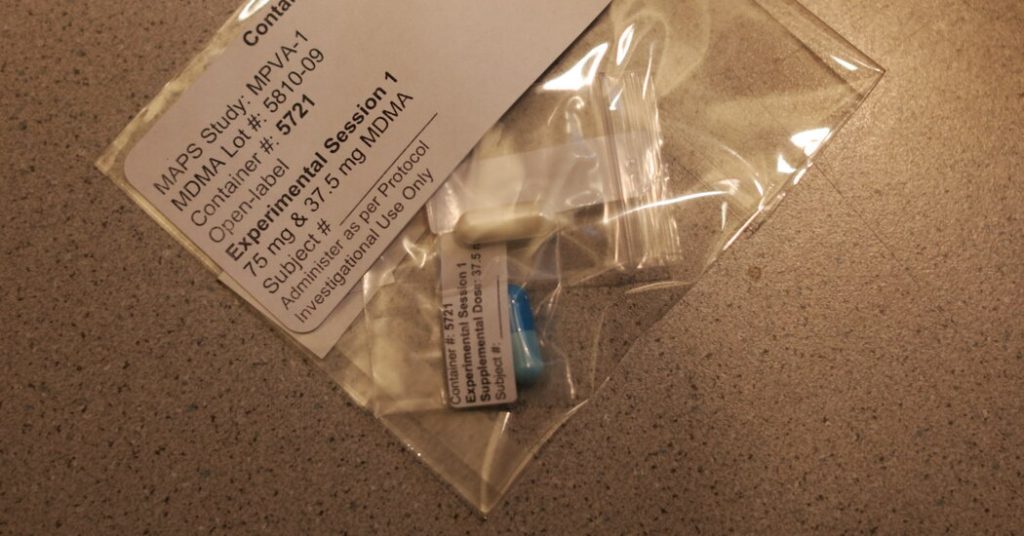An independent advisory panel of the Food and Drug Administration recently rejected the use of MDMA-assisted therapy for post-traumatic stress disorder, citing concerns about the design of the studies and potential risks associated with the drug. The panel voted against the therapy being effective and whether its benefits outweigh the risks, with issues raised about participants correctly guessing if they had taken MDMA during the study. Other concerns included potential cardiovascular effects of the drug, therapist bias, and lack of detailed data on abuse potential. Panelists were divided on the subject, with some emphasizing the need for new treatments for PTSD while others warned against premature adoption of treatments with unknown safety and effectiveness.
MDMA, also known as Ecstasy, is a synthetic psychoactive drug that promotes self-awareness, empathy, and social connectedness. Despite its illegal status as a Schedule I substance, efforts have been made to gain FDA approval for its use in therapy for PTSD. The FDA advisory panel’s focus on topics such as euphoria, suicidal ideation, and expectation bias shed light on regulatory challenges presented by MDMA-assisted therapy. If approved, it would be the first new treatment for PTSD in decades, offering hope to millions of Americans who suffer from this condition. The panel’s discussion highlighted the complexities and nuances of evaluating a therapy that involves a drug long associated with recreational use.
Studies submitted by Lykos, the drug’s sponsor, showed significant improvements in mental health for patients who received MDMA therapy in combination with psychotherapy. A high percentage of participants experienced a reduction in PTSD symptoms, with many no longer meeting the criteria for diagnosis after treatment. While some panelists expressed skepticism, others recognized the lasting positive effects of the therapy on participants. The FDA staff acknowledged the study’s shortcomings, including functional unblinding issues where participants were able to correctly guess whether they received MDMA or a placebo. Recommendations for approval included stringent regulations, monitoring of patients, and reporting of adverse events.
Diverging opinions were presented during the advisory panel meeting, with critics expressing concerns about the study designs and the potential risks associated with MDMA therapy. Others shared personal stories of how the therapy had positively impacted their PTSD symptoms, offering emotional testimonials in support of FDA approval. Some critics questioned the motives of the company behind the therapy, while supporters highlighted the transformative effects of MDMA therapy on their lives. The panel’s decision has brought attention to the need for stringent regulations and monitoring if FDA approval is granted, emphasizing the importance of patient safety and efficacy in utilizing psychedelics for therapy.
With the FDA’s decision expected in August, the future of MDMA-assisted therapy for PTSD remains uncertain. The therapy offers a potentially groundbreaking treatment option for millions of individuals suffering from PTSD, but concerns about safety, efficacy, and potential abuse risks must be carefully considered. The advisory panel’s vote reflects the ongoing debate surrounding the use of psychedelic compounds in mental health treatment and underscores the need for rigorous evaluation and regulation. As advocates and critics continue to voice their opinions, the FDA faces a challenging decision that could have far-reaching implications for the future of PTSD treatment in the United States.








